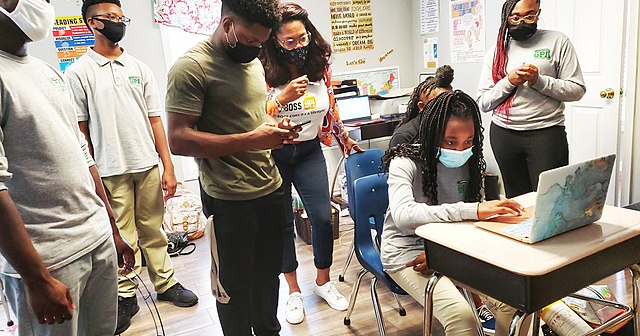By Nicholas Osoro, Contributing Writer
As of Mar. 21, 2022, Florida is the largest state requiring all students to take a mandatory stand-alone personal finance class before they graduate.
The bill signed on Mar. 22 by Gov. Ron DeSantis is named the Dorothy L. Hukill Financial Literacy Act in honor of the late Sen. Dorothy Hukill, who spent much of her career championing financial literacy in Florida schools. Florida joins ten other states that require high school students to undertake a financial literacy course before graduating.
The new bill will be a graduation requirement for students beginning high school for the 2023-2024 academic year. It will not affect students currently enrolled in high school.
According to CNBC News, more than 20 states in the United States have personal financial education in their curriculum, in different forms.
While signing the bill into law, DeSantis said that the bill’s purpose was to provide a platform for students to learn the basics of financial management. High school students will balance a simple balance sheet, understand the essentials of investing, manage their credit scores, open bank accounts, apply for loans, and learn about debt regardless of their path after graduating from high school.
According to an article by the New York Post, research has shown that adults who acquired some financial education as students have better management skills than those who did not.
Dr. Daniel Tschopp, a full professor of accounting at Saint Leo University, says that introducing financial literacy classes for high school students will help them make better financial decisions once they transition from high school to college.
“Students will now have the basics before they are required to take important financial decisions, such as taking students loans and filing their taxes.” Tschopp said.
Samara Hagan, a freshman majoring in sports business at Saint Leo, agrees with Tschopp that financial Literacy will help young people manage their money better. It will be helpful to young people once they get their first job, either as student workers or immediately after high school.
“Many students spend an entire paycheck in a day or two, and this can be attributed to them being illiterate when it comes to financial management,” said Hagan.
Financial proficiency is critical life expertise for a student in this era, says Shashiraj Paspilati, a graduate student in the Master of Business (MBA) program.
“Financial literacy education is critical, more so if introduced to students at a young age, not only to make sound financial decisions but also to help them make essential career options,” said Paspilati.
According to the Washington Post, the Florida Financial Literacy bill will be helpful because it will help close the gap in financial Literacy that exists currently.





